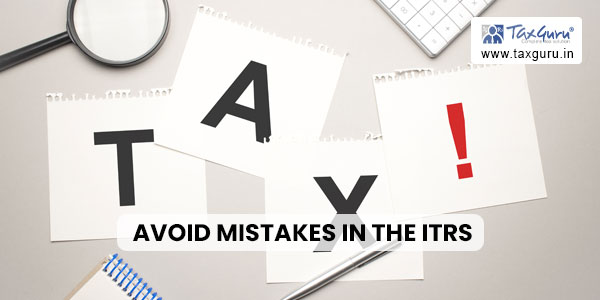In the world of fiscal responsibilities, filing Income Tax Returns (ITRs) is a fundamental obligation for every individual and entity, whether natural or artificial. The Income Tax Department mandates the submission of a statement of income earned during a Financial Year. This document, commonly known as Income Tax Returns, plays a pivotal role in the taxation framework of a country. In this article, we will delve into the rules, exemptions, and key insights associated with Income Tax Returns.
Income Tax Rules gives exemption to people or class of people from filing the Income Tax Return. This exemption can be given on the basis of:
- Age
- Nature of Income (e.g., Agricultural Income)
- Earning less than prescribed limit aka Basic Exemption Limit.
Most common and popular of all the exemptions, Basic Exemption limit is the most common and is applied to all the earning individuals. Income Tax Rules specify certain monetary limits, people earning below such limits are not required to file Income Tax Returns. These Monetary Limits are changed in the Union Budgets. Current Basic Exemption are as follows:
| OLD REGIME | NEW REGIME | |
| < 60yrs or Non-Resident | 2,50,000/- | 3,00,000/- |
| > 60yrs but <80yrs | 3,00,000/- | 3,00,000/- |
| > 80yrs | 5,00,000/- | 3,00,000/- |

Income Calculation for the purpose of ITR Filing is a complex process and require reconciliation with many parameters and information sources.
All types of legitimate income are divided into 5 heads of Income, namely:
- Income from Salary (for individuals only)
- Income from House property
- Income from Profit and Gains from Business and Profession (PGBP)
- Income from Capital Gains
- Income from Other Sources (residuary head of income)
Statement of Financial Transactions (SFTs) is a statement which is required to be submited by different Prescribed Entities. Examples of Prescribed Financial Entities are:
- Banks,
- RBI,
- Local Authority,
- Registering Authorities under Motor Vehicle Act,
- Revenue Authority (Collector’s/Sub Registrar’s office)
- Recognised Stock Exchange,
- Depositaries, etc.
All the prescribed entities (including mentioned above) are mandatorily required to submit financial information to the Income Tax Authority where ever such transactions exceed the thresholds. Different thresholds have been prescribed for different types of financial transactions.
So, one need to check what information has been provided to Income Tax Authorities by these prescribed entities, and must ensure that there is no omission of those income in the Income Tax. For Example, if the bank has reported 51,000 as interest income from fixed deposit, assessee must ensure that interest income from deposits in Income Tax Returns should not fall short of 51,000/-.
Common information that are available to Income Tax Authorities and can be viewed by assessee through AIS or TIS:
- Bank Interest, (saving or Deposit),
- Sale or purchase of Immovable Properties,
- Sale or purchase of business (if GSTIN exist)
- Sale or purchase of Mutual Funds, shares and other securities,
- Salary,
- Rental Income,
- Every other income that someone else has reported as expense in regard to assessee.
Some Points to remember to reduce the chances of getting notice from Income Tax.
- Refer and understand all the incomes reported in AIS/TIS,
- Ensure to report all your transaction in securities market (shares, MF, etc)
- Ensure to report the sale of Immovable Properties (if any),
- Try to report all your income sources and deductions to your employer for more accurate reporting and TDS deduction (for Salaried assessee)
- Ensure no variance with form 16 or 16A.
- Select appropriate ITR Forms.
- Fill all applicable schedules (e.g., Balance sheet particulars for No Account Cases)
- Do not file ITR with Tax payable.
All these tips and tricks do reduce the chances for selection of ITR for scrutiny and eliminate the chances of notice for mistakes in ITRs. But nothing can guarantee the same.
The parameters for selection of ITRs for further scrutiny have improved a lot in the last decade. Erroneous selection of returns has declined drastically and further measures are also taken to improve the flow of litigations and also providing a comfortable and transparent process to the general public.
One of the initiatives is Faceless Assessment, which is introduced to eliminate the risk of unlawful cooperation and corruption. More about the Faceless Assessment in the next Article.
Stay Tuned!!!!




